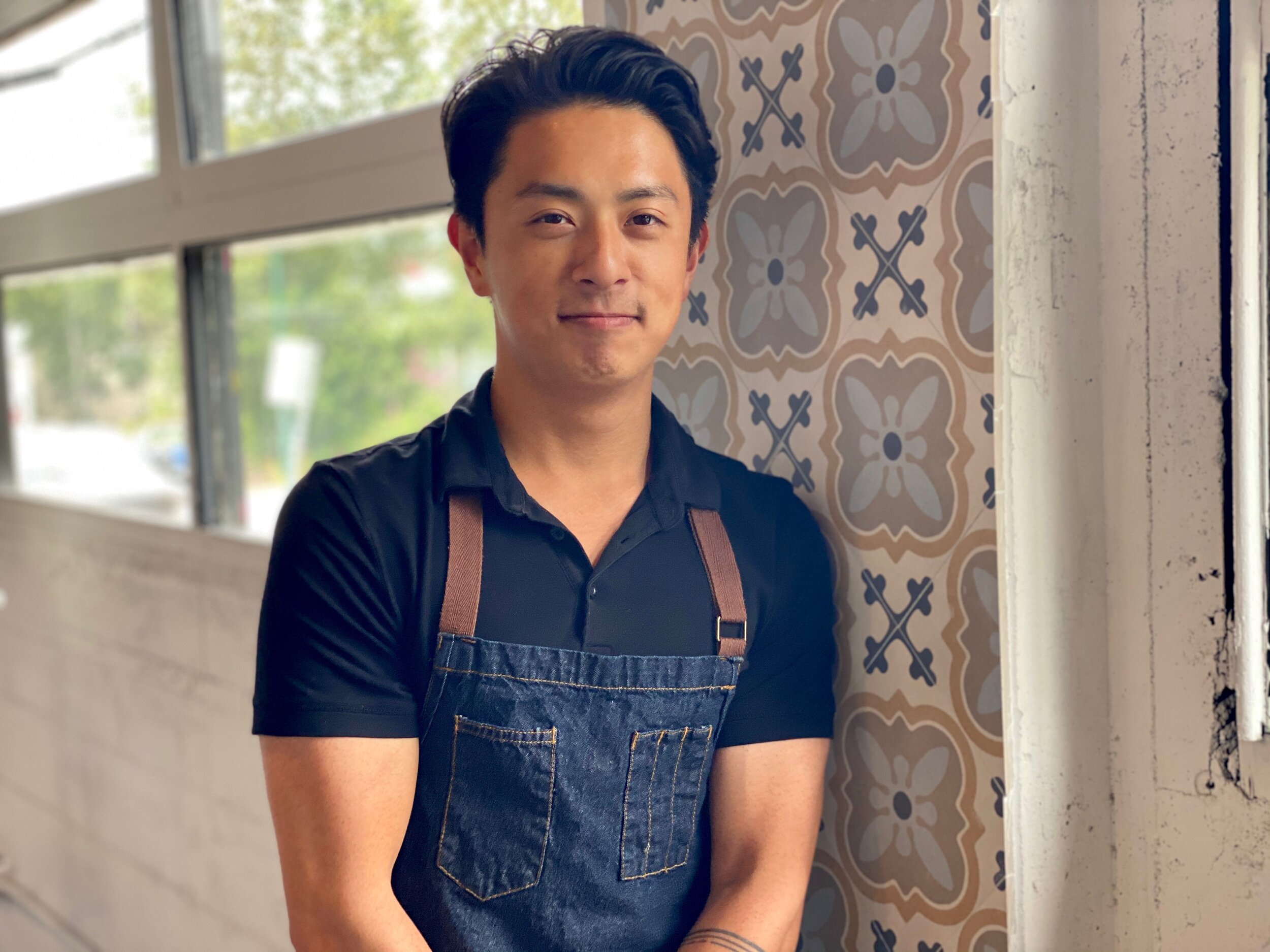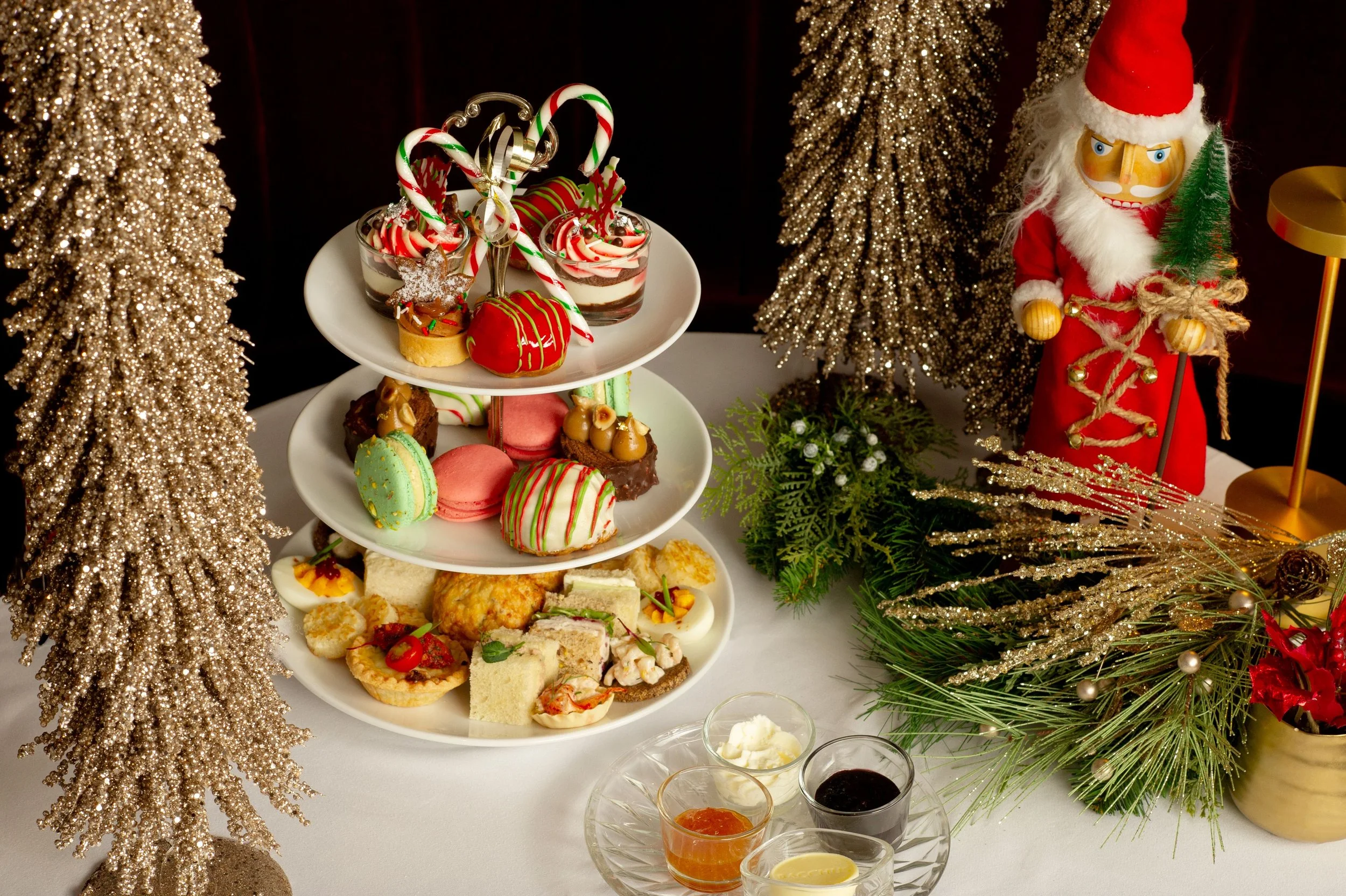Lunar New Year in Vancouver: 4 chefs, 4 countries, 4 stories
Celebrated throughout Asia, Lunar New Year has different traditions and tastes from place to place
Taeyoung Chang, culinary manager and chef at Coho Coffee.
IT’S THE YEAR of the Ox. Lunar New Year begins with the first new moon of the lunar calendar and ends on the first full moon, 15 days later. The holiday is often called Chinese New Year, however that’s starting to shift, as it’s celebrated in many other countries throughout Asia. While traditions vary from culture to culture, a through line is the importance of food.
Stir connected with four Vancouver chefs to find out more about their own celebrations, memories, and menus.
Taeyoung Chang, culinary manager and chef at Coho Coffee (pictured at top)
Born in Seoul, South Korea, Chang came to Canada in his youth with parents, sister, grandparents, and aunt. His father was the only one who could support the family, so he was always working. “I thought that if I worked too, he could work less, I could help the family, and we would all have something to talk about,” Chang says. “So when I turned 14, I started to wash dishes after school, and I haven’t stopped working since.”
He went on to train at the Culinary Institute of America.
The food he remembers growing up was a balance of extremes: “regionally specific dishes from all over Korea or White Spot and Lunchables”. His mom was fairly young when she had him and his sister, and, being in a new country, learning not only how to cook Korean food but also getting used to North American ingredients, she experimented a lot.
“I was really regimented with my cooking once upon a time, but now I feel like her and I will just see what's in the fridge and make up random things,” he says. “It’s hard to explain how passive and aggressive it really gets when you have both of us in the kitchen…”
One of the most vivid memories he has of Lunar New Year is when he moved back to Korea a few years ago and spent it with his grandmother.
“Her husband passed away so we made a lot of his favorite foods: 전, jeon. which is more of technique than a dish, but it’s where different vegetables and meats are battered and pan-fried; she made like 14 kinds. 고등어 구아, pan-fried salted mackerel. Lots of rice, apples, oranges, and, most importantly, enough soju to drown in.”
He admits that here in Vancouver, he hasn’t celebrated Lunar New Year in any grand fashion so far.
“Maybe first-generation immigrants can relate, but my focus was so much on assimilation that I rejected a lot of my own culture,” he says. “I'm thankful that my grandparents are still here, so I make sure I stop by my parents’ house and give them a bow. This year I'm thinking I’ll stop by and bow outside the house and maybe we can figure out a way to share a bottle of soju.
“I can’t speak for my entire culture, or why it’s so death-focused, but being a very North American Korean and getting to spend 설날 (seollal) with my grandma that year, it felt more like a celebration,” he says. “We cooked, drank, ate, drank some more, but really just talked about the good and bad ways death has affected our lives. It’s very wholesome.”
Henry Tchy, co-owner of H2Eats
H2Eats is a Vietnamese fusion food truck trailer that Tchy operates with his wife, Daisy. Adding Chinese influences to their fare, they make everything by hand, from Vietnamese pork patties to marinated lemongrass chicken to veggie spring rolls to sauces.
Tchy hails from East Vancouver, while his Chinese-born parents grew up in Vietnam, having moved to Canada in the 1980s. At the time, there wasn’t much in the way of Chinese-Vietnamese food around, so their family gathered to cook every day. “It was the highlight of the day,” Tchy says. “Everyone in the family sits together, everyone has a task to do, like washing, cooking or getting rice; chopping veggies; setting the table; or getting soup for everyone in the family. It felt like an event and a restaurant every day, so it was fun and very enjoyable.”
Of all of those family dinners, the New Years Eve feast always stood out. “My parents gave my siblings and I red envelopes with money inside just before dinner started,” Tchy says. “It was a yearly tradition. I remember my favourite dish and the most delicious was the soup made with crab, fish maw, chicken, and egg swirl.”
Tchy was always interested in food—and loves eating—but never pursued any formal training aside from working in a Greek/pizza restaurant just after high school for a few years. After that, he went into the tech field for a decade or so. Things changed after he had an injury and needed a new hip.
“I got the hip replaced and then it really hit me that I really missed working in the kitchen,” Tchy says. “So I decided to start a food truck called Henry’s Hip Eats, because it’s the hip replacement that got me back into the food industry.”
Pre-COVID-19, Tchy and his wife would usually celebrate Lunar New Year by going to his parents’ place to pray and offer to their ancestors’ shrine, then help make dinner. Then it was time for festive countdown activities before going to the temple to pray. If the night was still young, he might have met up with friends to go for a late-night snack, “try to stay out as late as possible to bring home some good fortune for the new year”.
This year will look much different. “I plan to stop by my parents’ place, but just to visit them outside with masks on, and to pick up some food my parents will prepare. I’ll go back home and enjoy with my wife, Daisy. We won’t be going out to the temple this year, so we plan to just stay in a watch some new year festivities on TV.”
Until February 23, H2Eats is participating in a fundraiser for the BC Cancer Foundation, donating a portion of their sales to the organization. “We want to give back to the people in need,” Tchy says.
Mona Stilwell, founder of Feeding Mama
After birthing twins and receiving a postpartum meal service, Stilwell felt called to provide a similar service to the public with a menu that reflected the food shifts in the city. Her venture provides food as medicine during the fourth trimester and prioritizes organic ingredients that are free of gluten, dairy, and refined sugar.
“Feeding Mama delivers ready-to-eat lactation cookies, bone broths, and meal plans for new parents so they can rest and focus on bonding with their new baby,” Stilwell says. (She notes on her website that her company recognizes that not all birthing parents are ‘mamas’ and not all parents, including mamas, give birth to their babies––some birthing parents are papas, babas or dads, and many parents adopt. Her products support all of those pathways into parenthood.")
Stilwell was born in Malaysia on the territories of the Momogun Rungus people and moved to Vancouver when she was three years old. Her ancestors are from China, Indonesia, and Portugal. In her traditional Chinese family, food was central to all celebrations, everyone spending time together cooking and eating.
“For Lunar New Year and most gatherings, we would go to my maternal grandparents’ house along with cousins and aunties and uncles to play and watch the adults make dumplings and sticky rice cake from scratch. There was always a whole steamed fish at the table as well as soy chicken.”
About 14 years ago, Stilwell started a tradition to share Lunar New Year with friends, most of whom are not Chinese, by inviting them over for an open house where she would set out a long table of tasty foods.
“The table would have hot and sour soup, freshly boiled dumplings that I hand-made weeks beforehand, and a congee bar with many toppings, including pickled bamboo shoot, roasted duck, and pork floss.
“This year, I will make a batch of dumplings for my partner and I to enjoy, as my children don’t enjoy dumplings yet.”
For Stillwell, Lunar New Year is really an opportunity for her family to spend time together and enjoy the food of their ancestors.
“As settlers on unceded Coast Salish territories,” she says, “we strengthen our cultural ties to our homeland when we gather to speak our languages, eat our traditional foods and reinforce cultural practices like red packets.”
Terence Ong of Terry Toast
Ong moved to Vancouver from Singapore in 2014 to pursue a degree in computer science at UBC. He was laid off because of COVID-19 and decided to try his hand at selling kaya, a coconut custard spread flavoured with pandan, a fragrant tropical plant. It’s so popular in his homeland that some people eat it daily on toast. Terry Toast was born.
Food is a big part of every Singaporean's life, he says. “It is considered a national pastime for Singapore alongside shopping,” Ong says. “All family gatherings revolve around eating together, or sitting around with some snacks and drinks.
“My main memory of Lunar New Year is the feast that my mom prepares every year, comprising of familiar favourites like her fried noodles, chicken curry, and Chinese meatballs. I look forward to having that every year, especially since I do not live there anymore so I tend to visit only once a year during Lunar New Year.”
Without being able to travel to see his family, Ong is spending the time he would have spent celebrating abroad focusing on Terry Toast. “We are new to the local Vancouver food scene and would love to work with local businesses on any interesting collaborations,” he says.

















